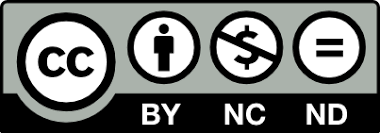FROM WORK TO TEXT AND BACK AGAIN
Keywords:
literary criticism, literary text, literary work, literary workAbstract
It has become a common practice in contemporary literary criticism that the concepts “literary text” and “literary work” are used as interchangeable synonyms and over the past few decades, the term "text" has occupied the place of "work". This article aims to discuss the reasons for stimulating this tendency and to specify the appropriateness of such use. It also stresses the particular relevance of not conflating the two aforementioned concepts into the same area of enquiry and attempts to draw the line between them.
Full Text (PDF)
References
Barthes, R. 1967. “Science versus literature” in: The Times Literary Supplement, pp.28: 897-898.
Barthes, R. 1979. “From Work to Text” in Josué V. Harary (ed.). Textual Strategies: Perspectives in Post-Structuralist Cricticism. Trans. Josué V. Harary. Ithaca, New-York: Cornell University Press, pp.73-81.
Culler, J. 1976. Structuralist Poetics: Structuralism, Linguistics and the Study of Literature. Ithaca, New York: Cornell University Press.
Erlich, V. 1980. Russian Formalism, 4th edn. The Hague, Paris, New-York: Mouton Publishers.
Graff, G. 1979. Literature Against Itself: Literary Ideas in Modern Society. Chicago and London: The University of Chicago Press.
Jakobson, R. 1987. “Linguistics and Poetics” in Language and Literature, Krystina Pomorska and Stephen Rudy (eds.), Cambridge, MA and London: Harvard University Press
Lamarque. P and Olsen S.H. 1994. Truth Fiction and Literature: A Philosophical Perspective. Oxford: Clarendon Press.
Lamarque, P. 2007. “Aesthetics and literature: a problematic relation?”, Philosophical Studies. Vol. 135 , pp. 27-40.
Leavis, F. R. 1975. The Living Principle: “English” as a Discipline of Thought. New York: Oxford University Press.
Livingston, P. 2013. History of the Ontology of Art in Stanford Encyclopedia of Philosophy, ed. N Zalta, U, Nodelman, et.al. Stanford: The Metaphysics Research Lab. (PDF Version of the Entry).
Mukarovsky, J. 1964. Standard Language and Poetic Language in a Prague School Reader, ed. Garvin, P. Washington: Georgetown University Press, pp. 17-30.
Olsen, S.H. 1987. “Literary Aesthetics and Literary Practice” in The End of literary theory. Cambridge: Cambridge University Press, pp.1-19.
Olsen, S.H. 1987. “Literary Theory and Literary Aesthetics” in The End of literary theory. Cambridge: Cambridge University Press, pp.196-211.
Pettersson, Bo. 2005. “Literature as Textualist Notion” in Stein Haugom Olsen and Anders Pettersson (eds.), From Text to Literature – New Analytic and Pragmatic Approaches, New York: Palgrave Macmillan, pp.128-146.
Olsen S.H. and Pettersson A. 2015. “Introduction” in From Text to Literature: New Analytic and Pragmatic Approaches. Basingstoke: Palgrave Macmillan, pp. 1-10.
Shusterman, R. 1986. Analytic Aesthetics, Literary Theory, and Deconstruction in Philosophy and Literary Theory, Vol. 69, No. 1, pp.22-38.
Shusterman, R.1987. Analytic Aesthetics: Retrospect and Prospect in The Journal of Aesthetics and Art Criticism, Vol. 46, pp.115-124.
Wimsatt. W and Beardsley, M. 1946. ‘The Intentional Fallacy’, Sewanee Review, vol. 54, pp. 468-488.
Wimsatt. W and Beardsley, M. 1949. ‘The Affective Fallacy’, Sewanee Review, vol.57, pp. 31-55.












